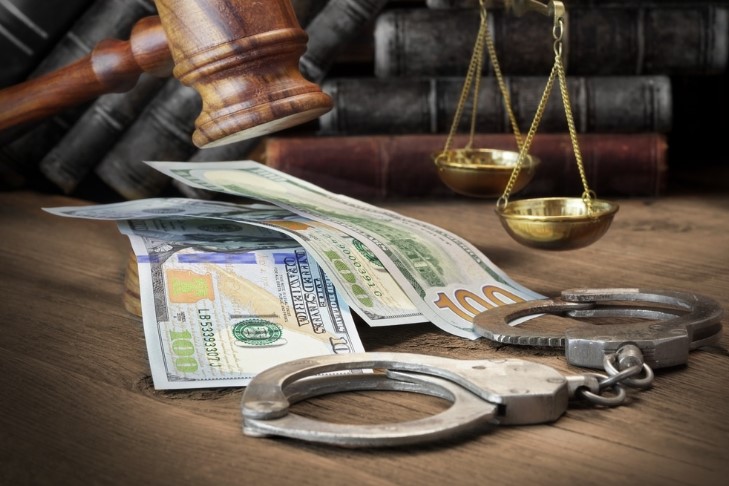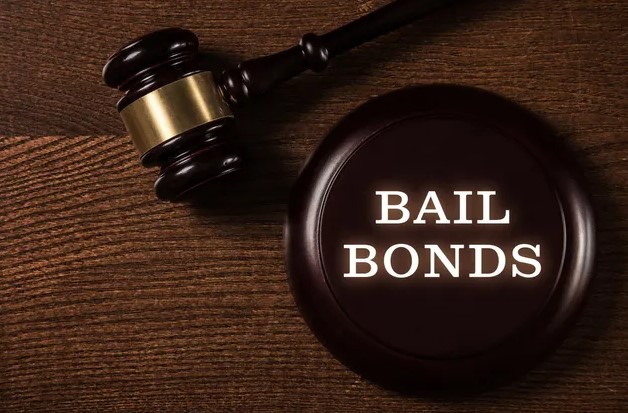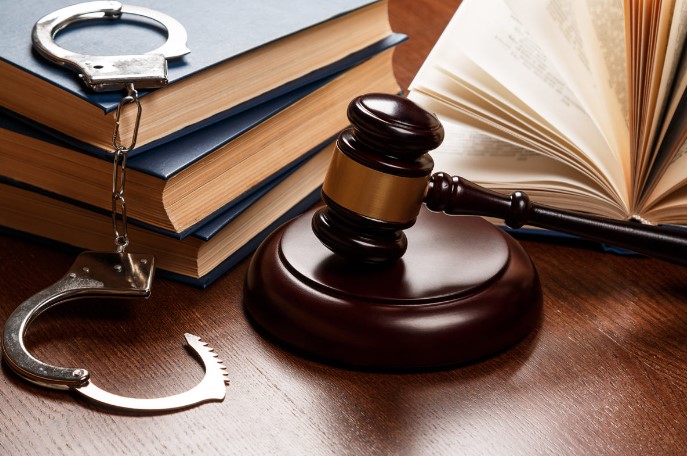
Secure Your Rights with a Skilled Theft Lawyer – 11 Essential Tips
Imagine finding yourself in a situation where you’re accused of theft. Whether you’re wrongly accused or have made a mistake, navigating through the legal intricacies can be daunting. This is where a theft lawyer steps in – a legal professional with expertise in theft-related cases, dedicated to safeguarding your rights and ensuring a fair legal process. In this comprehensive guide, we’ll dive into the world of theft lawyers, discussing their vital role, responsibilities, and how they can help you in your time of need.
Understanding Theft Charges and Their Ramifications
Theft is a serious offense with potential legal and personal consequences. It involves unlawfully taking someone else’s property without their consent, intending to permanently deprive them of it. The severity of theft charges varies based on factors such as the value of the stolen property, use of force, and past criminal history. From minor shoplifting incidents to complex white-collar crimes, theft charges encompass a wide spectrum of scenarios. To protect your rights and ensure a fair legal process, enlisting the assistance of a skilled theft lawyer is paramount.
The Crucial Role of a Theft Lawyer
A theft lawyer plays a pivotal role in safeguarding your rights and providing expert legal representation during theft-related cases. Their expertise extends beyond the courtroom – they provide valuable guidance from the moment you’re accused, ensuring that your rights aren’t violated during police questioning or investigation. A seasoned theft lawyer possesses in-depth knowledge of theft laws, local regulations, and legal procedures. They analyze the specifics of your case, devise effective defense strategies, and strive to achieve the best possible outcome for you.
Qualities to Look for in a Competent Theft Lawyer
When facing theft allegations, your choice of a theft lawyer can significantly impact the outcome of your case. Look for qualities such as experience, specialization in theft law, a track record of successful cases, and excellent communication skills. A competent theft lawyer should be empathetic, attentive to details, and capable of building strong relationships with clients. By choosing the right lawyer, you’re investing in your defense and increasing the likelihood of a favorable resolution.
Steps to Take When Accused of Theft
If you find yourself accused of theft, it’s crucial to remain composed and take immediate steps to protect your rights. First, refrain from making any statements to the police without your theft lawyer present. Politely request legal representation and avoid self-incrimination. Cooperate with the authorities but remember that your lawyer’s guidance is essential to navigate the legal process successfully. Keep track of all details related to the incident, as they might become crucial during the defense process.
Theft Lawyer’s Assistance During Police Questioning
Police questioning can be intimidating, especially if you’re accused of theft. Your theft lawyer’s presence is invaluable during this phase. They ensure that your rights are upheld, prevent coercive tactics, and guide you on what to say or not say. Remember that you have the right to remain silent and avoid self-incrimination. Your lawyer can help strike a balance between cooperation and protecting your interests.
Theft Lawyer’s Strategies for Building a Strong Defense
A skilled theft lawyer employs various strategies to build a robust defense tailored to your case’s specifics. They scrutinize evidence, interview witnesses, and explore potential weaknesses in the prosecution’s case. From challenging the credibility of witnesses to questioning the chain of custody of evidence, these strategies aim to cast doubt on the prosecution’s claims. Your lawyer’s expertise and dedication can be instrumental in securing an acquittal or a favorable plea agreement.
Exploring Theft Categories: Petty, Grand, and Burglary
Theft charges are categorized based on the value of the stolen property and the circumstances surrounding the incident. Petty theft typically involves low-value items and is often charged as a misdemeanor. On the other hand, grand theft entails higher-value property and can result in felony charges. Burglary involves entering a building with the intent to commit theft, and it carries its own set of legal implications. Understanding these categories is essential for formulating an effective defense strategy with your theft lawyer.
Theft vs. Robbery: Unveiling the Differences
While theft and robbery are both property crimes, they have distinct legal definitions and implications. Theft involves unlawfully taking property without force or intimidation, while robbery entails using force, threats, or intimidation to take property directly from another person. Robbery is often considered a more serious offense due to its violent nature. Differentiating between these terms is essential for accurately describing the charges you’re facing and determining the appropriate legal strategy with your theft lawyer.
Theft Laws and Penalties: Know Your Rights
Theft laws vary by jurisdiction, but they typically encompass elements such as intent, value of stolen property, and the presence of aggravating factors. Penalties can range from fines and restitution to probation, imprisonment, or a combination thereof. Your theft lawyer’s expertise in local theft laws is crucial for navigating this complex landscape. They can provide insights into potential penalties, explore plea bargain options, and work toward minimizing the impact of charges on your life.
Navigating the Legal System: From Investigation to Trial
The legal process following a theft accusation involves several stages, each requiring strategic navigation. Your theft lawyer will guide you through the investigation, which includes evidence collection, witness interviews, and legal research. If charges are filed, your lawyer will assist you in arraignment, pre-trial motions, and negotiations. In the event of a trial, their courtroom expertise becomes invaluable. Throughout this journey, your theft lawyer ensures that your rights are upheld, and you receive a fair trial.
Theft Expungement: Clearing Your Name Legally
Being charged with theft can have lasting consequences on your record, affecting your employment and personal opportunities. However, under specific circumstances, you may be eligible for theft expungement – a legal process that clears your criminal record. Your theft lawyer can guide you through the eligibility criteria, the expungement process, and the benefits it can bring. Clearing your name through expungement can provide a fresh start and help you move forward positively.
Protecting Your Rights: Common FAQs About Theft Lawyers
FAQs
- Can a theft lawyer really make a difference in my case? Absolutely. A theft lawyer’s expertise can impact the outcome of your case significantly. They navigate legal complexities, build strong defenses, and safeguard your rights.
- What should I look for when hiring a theft lawyer? Prioritize experience, specialization in theft law, a successful track record, and strong communication skills. A lawyer’s empathy and dedication also matter.
- Do I need a theft lawyer even if the charges seem minor? Yes, even seemingly minor charges can have unforeseen consequences. A theft lawyer ensures your rights are upheld and helps you make informed decisions.
- Can a theft lawyer prevent charges from being filed against me? While they can’t guarantee prevention, theft lawyers can negotiate with authorities to deter charges. If charges are filed, they can build a solid defense.
- Will my lawyer communicate with me throughout the process? Absolutely. Open communication is crucial. A good theft lawyer will keep you informed about case developments, strategies, and potential outcomes.
- Is theft expungement a viable option for me? It depends on your jurisdiction and the specifics of your case. Consulting a theft lawyer will help you determine if expungement is feasible.
Crafting a Strong Defense: Expert Insights
Crafting a compelling defense requires a deep understanding of theft laws and innovative legal strategies. Theft lawyers often analyze evidence meticulously, seeking inconsistencies and weaknesses. This process involves collaborating closely with clients, gathering relevant information, and consulting experts if necessary. A successful defense can result from the combination of legal knowledge, analytical skills, and a thorough understanding of the unique aspects of each case.
Learning from Landmark Theft Cases
Landmark theft cases provide invaluable insights into legal precedents, strategies, and potential outcomes. Studying these cases can help theft lawyers refine their approaches, anticipate challenges, and develop effective defense strategies. While each case is unique, learning from past successes and failures contributes to a theft lawyer’s expertise and ability to adapt to changing legal landscapes.
Collaborating with Your Theft Lawyer: A Recipe for Success
A collaborative relationship between you and your theft lawyer is essential for a successful defense. Maintain open communication, provide all relevant information, and actively participate in building your defense strategy. Your insights can be instrumental in formulating a comprehensive defense that accounts for the nuances of your situation. By working together, you increase your chances of achieving a favorable outcome.
The Emotional Toll of Theft Accusations: Mental Health Matters
Being accused of theft can take a toll on your mental well-being. The stress, anxiety, and uncertainty can be overwhelming. It’s crucial to prioritize your mental health during this challenging time. Seek support from friends, family, or professionals, and consider engaging in stress-relief activities. Your theft lawyer not only focuses on legal matters but can also provide guidance on managing the emotional impact of accusations.
Your Guide to Choosing the Right Theft Lawyer
Choosing the right theft lawyer is a decision that shouldn’t be taken lightly. Consider factors such as experience, specialization, reputation, and compatibility. Schedule consultations to gauge their understanding of your case and their proposed strategies. Trust your instincts and select a lawyer who not only possesses legal expertise but also demonstrates genuine care for your well-being and a commitment to protecting your rights.
Demystifying Legal Jargon: Theft Law Glossary
Navigating the legal world involves encountering complex terminology. Here’s a glossary of common theft-related legal terms:
- Larceny: Another term for theft, involving the unlawful taking of someone else’s property.
- Restitution: Compensation paid to the victim to make up for the stolen property’s value.
- Felony: A serious crime, often carrying severe penalties.
- Misdemeanor: A less serious offense compared to a felony, with relatively lighter penalties.
- Aggravating Factors: Circumstances that make a crime more serious, potentially leading to enhanced penalties.
- Miranda Rights: Constitutional rights that protect suspects during police questioning.
- Chain of Custody: Documented record of the handling of evidence to ensure its integrity.
Theft Prevention Tips: Safeguarding Your Future
Prevention is key to avoiding theft accusations. Follow these tips to protect yourself:
- Respect Others’ Property: Always obtain permission before using or borrowing someone else’s belongings.
- Avoid Suspicious Situations: Steer clear of situations that could be misinterpreted as theft.
- Stay Organized: Maintain records of transactions and agreements involving valuable items.
- Communication Matters: Communicate openly with others to prevent misunderstandings and disputes.
- Seek Legal Advice: If uncertain about an action’s legality, consult a theft lawyer before proceeding.
Empower Yourself: Know Your Theft-Related Rights
Understanding your rights when it comes to theft accusations is empowering. Remember:
- You have the right to remain silent and avoid self-incrimination.
- You have the right to legal representation during police questioning.
- Charges must be proven beyond a reasonable doubt for a conviction.
- You’re innocent until proven guilty in a court of law.
Conclusion: Securing Your Future with a Skilled Theft Lawyer
Accusations of theft can turn your life upside down, but you don’t have to face them alone. A skilled and experienced theft lawyer can be your ally, guiding you through the legal complexities, building a strong defense, and safeguarding your rights. By understanding theft laws, collaborating closely with your lawyer, and prioritizing your mental well-being, you can navigate this challenging journey with confidence. Remember, you have the power to secure your future with the expertise of a theft lawyer by your side.
FAQs
Can a theft lawyer guarantee a dismissal of charges?
While a theft lawyer cannot guarantee specific outcomes, their expertise can significantly improve your chances of a favorable resolution. They work diligently to build a strong defense and negotiate on your behalf.
What happens if I can’t afford a theft lawyer?
If you cannot afford a private theft lawyer, you have the right to a public defender provided by the state. They will represent you and ensure your rights are protected throughout the legal process.
Will my case go to trial?
Not all theft cases go to trial. Many cases are resolved through negotiation or plea bargains. Your theft lawyer will assess the specifics of your case and recommend the best course of action.
How long does the legal process for theft cases usually take?
The duration of a theft case varies widely based on factors such as the complexity of the case, court backlog, and negotiation processes. Your theft lawyer can provide a better estimate based on your circumstances.
Can I represent myself in a theft case?
While you have the right to represent yourself, it’s generally not recommended, especially in complex cases. Theft laws and legal procedures are intricate, and having a skilled theft lawyer can significantly impact the outcome in your favor.
Is it possible to have theft charges expunged from my record?
In some cases, theft charges can be expunged from your criminal record. Eligibility criteria and expungement procedures vary by jurisdiction. Consult a theft lawyer to determine if you qualify for expungement.
Partner Site : Fashion Style, Homes For Rent, Economy News, World Finance News, Business News, Technology News, Garden Furniture, House Update, Healthy Dog, Beautiful Art


